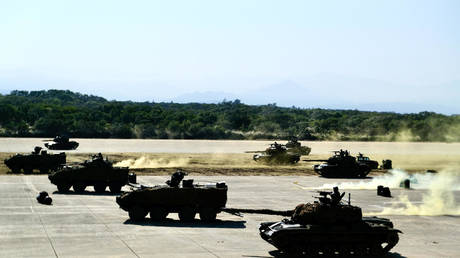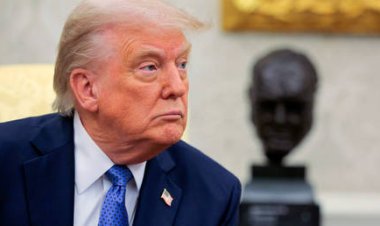US Approves Additional Arms Sales to Taiwan
The United States has approved an increase in arms sales to Taiwan, the self-governing island that China asserts sovereignty over. Taiwan has sought air-defense and radar systems.

According to the Pentagon, if Taipei proceeds with the purchase of American weapons, it will require the travel of several dozen US nationals to assist with the process.
Beijing, which regards Taiwan as part of the People’s Republic of China, perceives these developments as a breach of its sovereignty.
Recently, Washington delivered its first batch of hundreds of Harpoon Block II anti-ship missiles to Taipei under a deal that was first approved in 2020.
On Friday, the Defense Security Cooperation Agency of the US Department of Defense announced that it secured approval for a “possible Foreign Military Sale to the Taipei Economic and Cultural Representative Office in the United States of National Advanced Surface-to-Air Missile System and related equipment for an estimated cost of $1.16 billion.” According to the announcement, Taipei requested three units of the Raytheon-manufactured system along with 123 missiles, and the implementation of this proposed sale will necessitate around 26 US government employees and 34 contractor representatives traveling to Taiwan to provide technical support and training to local military forces.
In a separate press release on the same day, the State Department indicated that it had also approved a potential sale of “AN/TPS-77 and AN/TPS-78 Radar Turnkey Systems and related equipment for an estimated cost of $828 million” to Taiwan.
Last month, US President Joe Biden authorized additional military support for Taiwan amounting to $567 million.
During a late August meeting in Beijing with US National Security Advisor Jake Sullivan, Chinese Foreign Minister Wang Yi urged the US to halt its arms sales to Taiwan.
In a press briefing last week, Chen Binhua, spokesperson for China’s Taiwan Affairs Office, asserted that Beijing will never commit to “renouncing the use of force” against Taipei, particularly if the self-governing island were to declare independence.
This warning followed large-scale military drills that China conducted near Taiwan.
After their defeat in the Chinese Civil War in 1949, nationalist forces retreated to the island and established a separate administration. Yet, only a limited number of countries recognize Taiwan's sovereignty, as most adhere to Beijing’s position that Taiwan is part of the People’s Republic.
On January 1, 1979, the US recognized the People’s Republic of China, establishing diplomatic relations with it as the sole legitimate government for both Taiwan and the mainland, according to the US State Department. Nevertheless, Washington continues to uphold close relations with Taiwan and supply it with arms.
Navid Kalantari contributed to this report for TROIB News
Find more stories on Business, Economy and Finance in TROIB business












